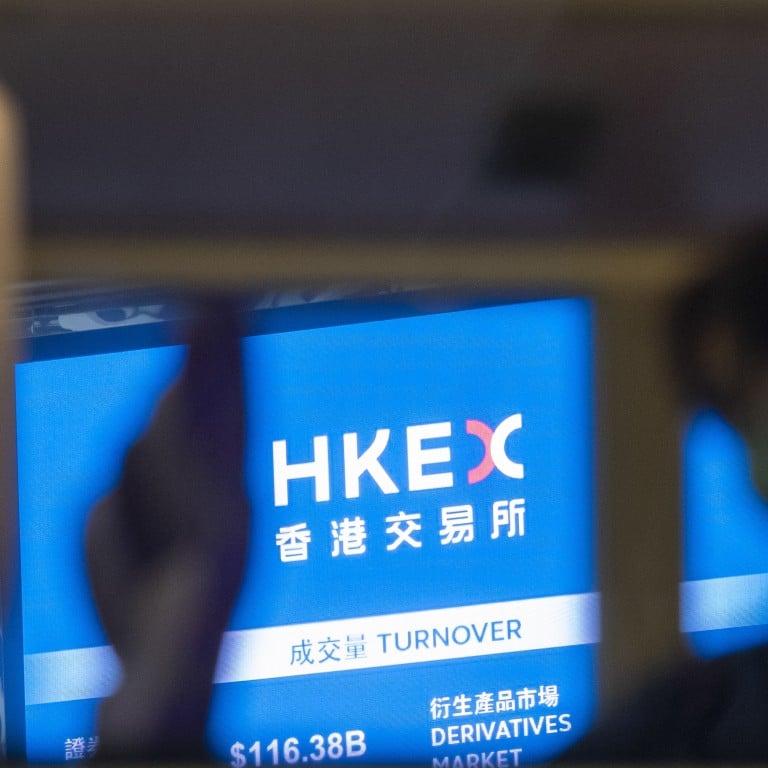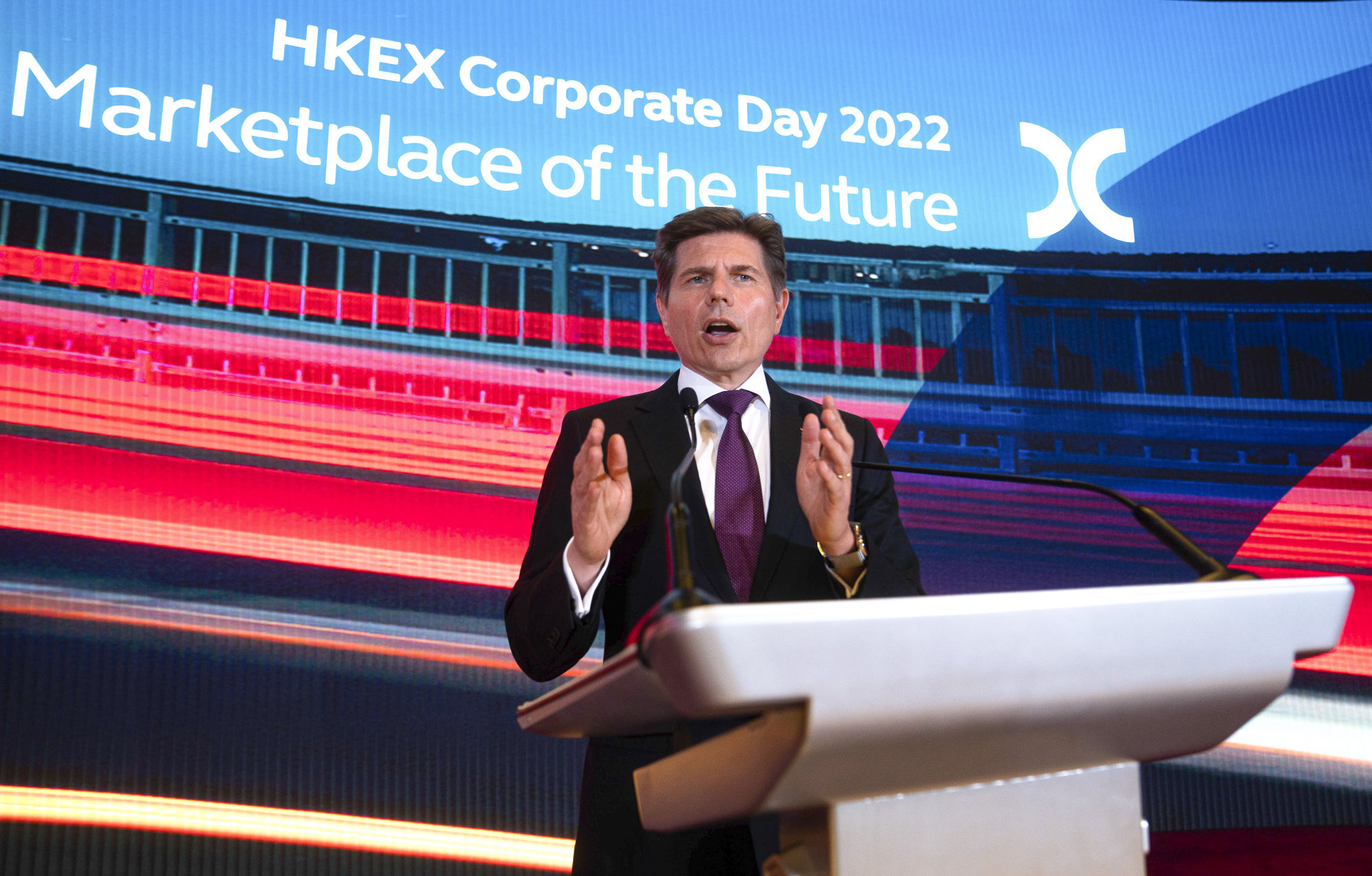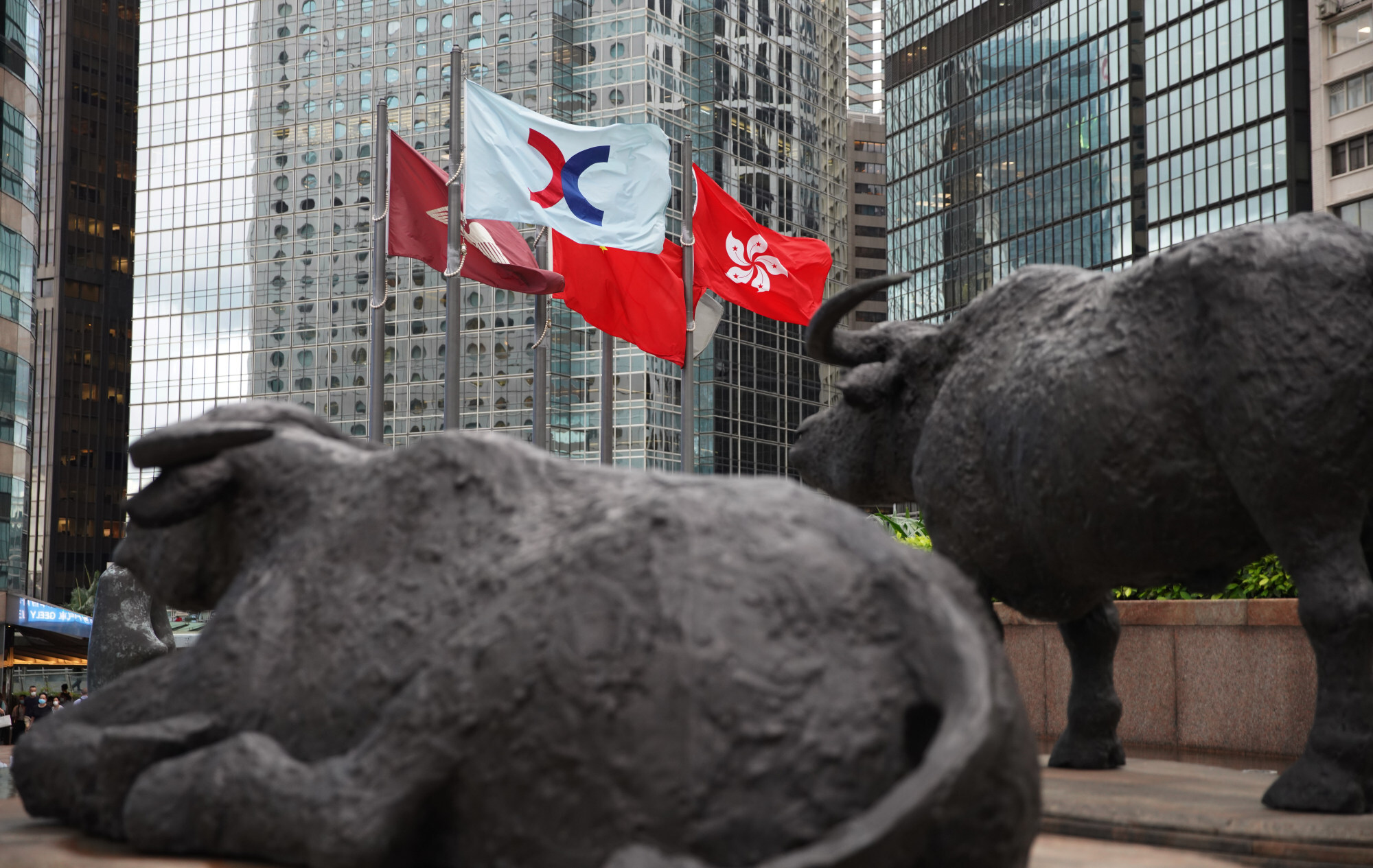
HKEX posts biggest quarterly profit drop in five years as IPOs and stock trading dry up amid Hong Kong’s Covid-19 slump
- The exchange’s net profit fell to HK$2.67 billion, or HK$2.11 per share, in the first three months
- Average daily transactions on the exchange shrank by 35 per cent to HK$146.53 billion during the first quarter, sending HKEX’s core business revenue tumbling by 16 per cent
Net profit fell 31 per cent to HK$2.67 billion (US$340.29 million), or HK$2.11 per share, in the first three months, worse than the HK$2.96 billion expected in Bloomberg’s analysts survey. Revenue fell 21 per cent to HK$4.69 billion, missing expectations by 4.8 per cent.
“Throughout the first quarter, HKEX showed its robustness and resiliency despite ongoing market volatility and geopolitical fragility,” HKEX’s chief executive Nicolas Aguzin said in a statement. “However, we were not immune to global market sentiment which resulted in some softness in the IPO market, reduced valuations in our investment portfolio and pricing volatility in our commodities market.”
The earnings slump puts pressure on Aguzin and the blueprint he unveiled last month to reinvigorate the world’s fourth-largest financial marketplace. Under the plan, HKEX will launch a new digital trading platform and expand the transborder investment channels with mainland China to include exchange-traded funds (ETFs).

HKEX shares dropped 0.1 per cent to HK$321.4 in after the results were announced. The stock has fallen by 34 per cent over the past 12 months, tracking the 31 per cent decline in the benchmark Hang Seng Index.
Average daily transactions on the exchange shrank by 35 per cent to HK$146.53 billion during the first quarter, sending HKEX’s core business revenue tumbling by 16 per cent to HK$4.76 billion, as trading and settlement fees fell with the decreasing volume.
Listing fees fell 5 per cent as fundraising from new listings plummeted by 90 per cent in the first three months, as most business activities were curbed amid Hong Kong’s strict social distancing rules to rein in a resurgent Covid-19 outbreak.
Eleven companies raised US$1.72 billion on HKEX in the first quarter, putting Hong Kong in sixth place among global IPO destinations, the lowest number in nine years, according to Refinitiv’s data.
“We are still optimistic about [Hong Kong’s potential as a global IPO market],” Aguzin said during a media briefing. “As of last Friday, there were 180 [listing applicants] in the queue. We still see a lot of interests from companies selecting HK as the listing venue of choice.”
Hong Kong’s ‘moon shot’ lab offers glimpse at future of finance
The profit decline was also due to the HK$104 million investment loss by HKEX from its portfolio of global stocks and bonds, compared with a gain HK$219 million a year earlier.
Two Stock Connect schemes with mainland bourses contributed HK$641 million in revenue during the quarter, 13 per cent lower than HK$737 million a year earlier.

Offshore investors traded 16 per cent per cent fewer of the A shares listed in Shenzhen and Shanghai last quarter, based on the average daily turnover of so-called northbound trading. On the reverse southbound flow, volume declined 42 per cent to HK$35.5 billion per day, according to HKEX.
HKEX’s costs during the first three months increased 7 per cent to HK$1.18 billion as a result of higher staff and IT expenses.
“The stock market turnover has declined while many mega IPOs were held up” during the first quarter, said Tom Chan Pak-lam, chairman of Hong Kong Institute of Securities Dealers, speaking before HKEX reported its results. “The stock market performed badly in the first quarter, and the same challenges may continue in the rest of this year, especially with the US raising interest rates.”


